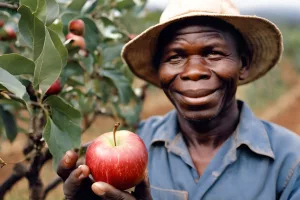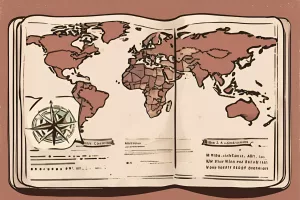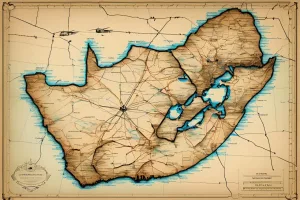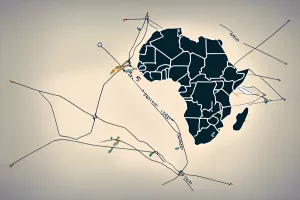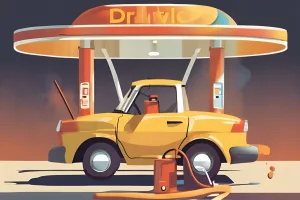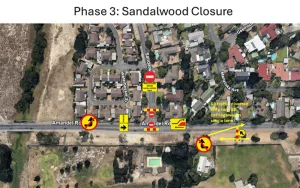The Table Bay Hotel in Cape Town is set to undergo a billion rand transformation, as it prepares for a new lease and a new management structure under the InterContinental brand. The refurbishment will not only update the hotel’s decor, but also expand its international reach, as part of the IHG Hotels & Resorts network. The revamp is part of a broader trend of hotels in Cape Town responding to a surge in visitor numbers, and aims to preserve the hotel’s legacy while embracing modernity.
South African National Parks (SANParks) has introduced a new digital service, the TMNP My Activity Permit, allowing for easy procurement of the permit for certain leisure activities within the Table Mountain National Park. The permit is costeffective and valid for a year from the date of purchase. It is aimed at improving the guest experience by enabling smoother exploration of the park’s diverse options and protecting the environment. The procurement process is userfriendly, and holders do not have to pay entrance fees at TMNP pay points for their designated activities, making outdoor activities within this stunning park more economical and attractive.
Johannesburg’s Prepaid Electricity Surcharge Reconsideration: The City’s Tricky Balancing Task
Johannesburg, South Africa is facing a challenge of balancing fiscal responsibility with public opinion over a monthly surcharge on prepaid electricity. The city administration has committed to reassessing the surcharge due to growing public discontent while also taking into consideration its financial stability and legal compliance. The exemption of economically disadvantaged people from the surcharge has been implemented as a relief measure, highlighting Johannesburg’s commitment to public involvement in decisionmaking. Managing financial burdens, escalating electricity expenses, and implementing the surcharge are all crucial aspects of Johannesburg’s strategic approach to its fiscal challenges.
SterKinekor is undergoing a revolutionary transformation in the cinema industry, led by CEO Mark Sardi. The company is integrating interactive educational experiences and console gaming into its cinema venues, potentially turning them into egaming stages. Despite facing challenges such as staff reductions and shutdowns, SterKinekor is embracing innovation and exploring new directions, while honoring its cinematic heritage with the “Throwback Cinema” project.
Get ready for a new player in the apple world: the Kimito apple! Originating from Japan, this goldenhued fruit boasts impressive storage capabilities, catching the attention of international distributors. Wismettac Foods has partnered with a South African business to introduce the Kimito apple to the farming landscape, potentially creating a strong export market targeting Asia and beyond. The partnership also safeguards intellectual property rights through the “club variety” system, ensuring that Hirosaki University will benefit from a licensing fee.
South Africa’s rental property market is on the rise, with a strong demand for rental properties leading to low vacancy rates. Factors like highinterest rates, economic uncertainty, and low employment rates have encouraged a shift from homeownership to rental properties. The Western Cape and Gauteng are prime markets for landlords and investors, with a continuing preference for renting over homeownership predicted for the second quarter of 2024. Despite challenges, the rental market offers a golden opportunity for investors, with promising returns expected in the future.
A Paradigm Shift in South Africa’s Passport Influence: An In-depth Analysis of its Worldwide Reach
South African passport holders can travel without visas to 35 African nations, 18 countries in the Americas, 17 in Asia, 16 in the Caribbean, 3 in Europe, 8 in the Middle East and 10 in Oceania. However, recent changes to visa regulations, such as Ireland’s adjustment, have reduced their global influence. South Africans should stay informed about evolving visa regulations to make the most of their passport’s opportunities.
Ms. Barbara Creecy envisions a reliable transport system that promotes economic prosperity and enhances connectivity in the country despite challenges such as deteriorating road conditions, logistics hurdles, capacity constraints, and poor road safety. She plans to implement meaningful reforms at Transnet, prioritize road safety measures, and upskill the existing workforce while embracing new technologies. Her vision for the future of South Africa’s transport sector is optimistic and proactive, promising a brighter tomorrow.
Eskom, the national power provider in South Africa, achieved a remarkable feat by going 100 consecutive days without load shedding. This achievement is a result of the organization’s tenacity and tactical planning, and has generated an estimated R6.2 billion decrease in Open Cycle Gas Turbines diesel expenditure. Eskom’s immediate focus is to recover more power from their generation coal fleet and Koeberg Unit 2 before the end of the year, and they attribute their success to the relentless efforts of their devoted and proficient employees.
South African Airways (SAA) is embarking on an ambitious expansion strategy to double its route network and increase its fleet by at least 30% within the next year and a half. The airline is carefully selecting routes to maintain financial stability amidst its current economic situation. SAA’s General Manager for Global Sales and Marketing confirms the airline’s dedication to enhancing its flight schedule to provide seamless connectivity for customers in South Africa and Southern Africa. The expansion is good news for travelers, offering more options for affordable and efficient air travel.
Unforeseen Closure of PayCity’s Car License Renewal Service: Consequences and Replacement Options in South Africa
PayCity, the most affordable car license renewal service in South Africa, has unexpectedly ceased operations, leaving its customers confused and unhappy. However, there are alternative options for South Africans, such as the governmentsupported eNatis portal, My Money Market and Checkers, Spar, Pick n Pay, and the South African Post Office. The closure of PayCity has left a gap in the market, but there are still costeffective solutions available for vehicle license renewals.
Air Botswana, the national airline of Botswana, is expanding its route network to improve connectivity with neighboring nations, particularly South Africa. The new routes are expected to boost sales, increase demand, and make air travel more affordable in the targeted markets. Air Botswana’s expansion plan includes introducing new routes and reinstating some temporarily halted due to the COVID19 pandemic. The airline has also upgraded its fleet to support its ambitious plans and achieve financial stability and operational efficiency.
Good news for South African motorists as fuel prices are set to decrease from July 3, 2024, with a significant fall in petrol and diesel prices. The decline is largely driven by global trends, including a boost in oil production by nonOPEC countries. The reductions are expected to provide relief for daily commuters and transport businesses, with potential opportunities for affordable car deals in the market. Overall, the recent fuel price adjustments present a unique opportunity for South African motorists to enjoy a more economical commute.
Kuils River’s cityscape is undergoing a revolutionary transformation with the Urban Mobility Directorate converting Amandel Road into a dual carriageway to alleviate traffic congestion. The temporary disruption will require necessary deviations and disruptions, but the city’s commitment to improving urban mobility and creating a beautiful, efficient, and conducive environment for growth is evident. The project epitomizes the city’s forwardthinking vision and dedication to progress while enhancing the quality of life for its residents.
The culinary world is abuzz with controversy as South African food content creators Onezwa Mbola and Nara Smith face off over allegations of imitation on TikTok. Mbola accused Smith of copying her unique meal ideas, particularly in the preparation and presentation of certain dishes. The brewing tension reached a boiling point when Smith uploaded a video of herself making boba tea, a similar beverage to Mbola’s with a unique guava leaf twist, leading to accusations of plagiarism. The incident highlights the importance of recognizing and honoring originality in the creative industry.
Online education is an excellent way for individuals to learn new skills while maintaining a steady income. Red & Yellow offers flexible programs instructed by industry specialists, allowing students to study at their own pace from anywhere, at any time. With online education, individuals can earn while they learn and experience significant career benefits, such as securing a new job, earning a promotion, or receiving a raise in salary. Red & Yellow’s accredited online qualifications provide students with recognized and valuable credentials, making them more competitive in the job market.





